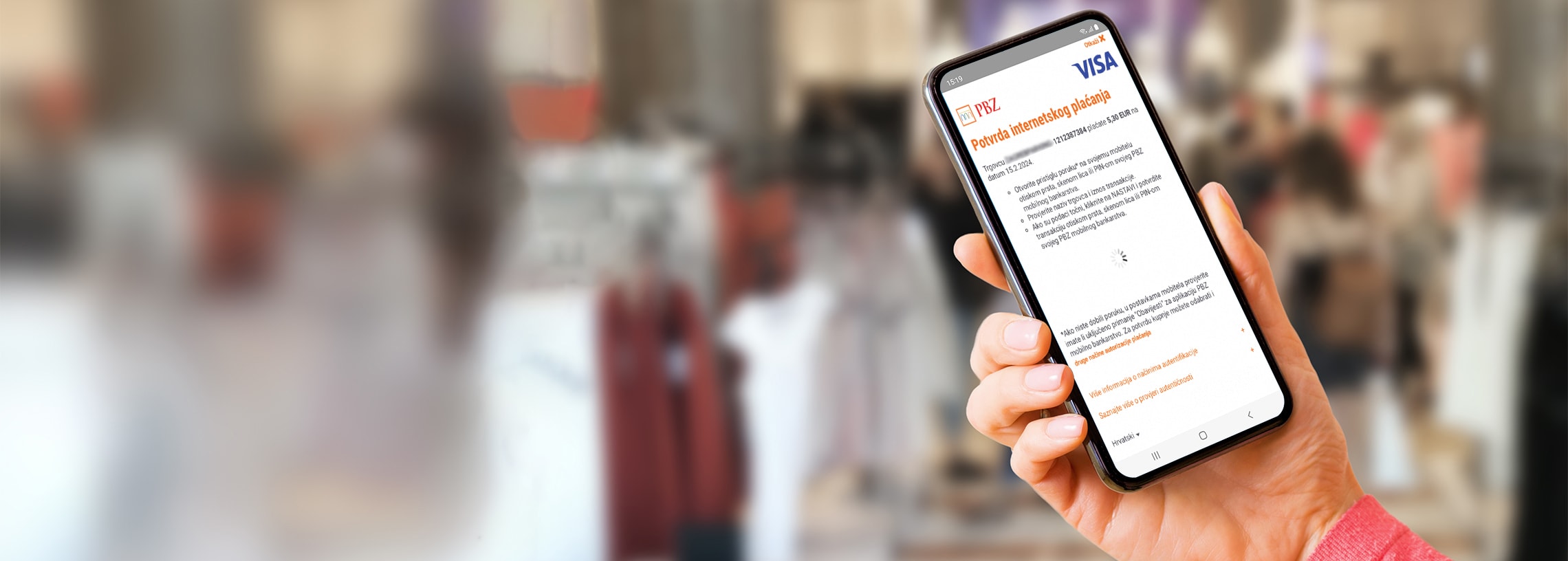Practicality
Today, more than ever, we shop from the comfort of our homes. At every step we notice tempting offers, usually available in limited quantities and for a short period of time, big discounts...but is everything as it seems?
Just in a situation where you need to react quickly in order not to miss a great opportunity, fraudsters are waiting for your recklessness and rashness.
Read tips on how to protect yourself and shop safely.
Be on your guard
- Buy from trusted and well-known online stores, do not access them via links received on social networks, in e-mails or other channels.
- Always enter the address of the online store manually in the internet browser.
- Research the online store from which you are ordering for the first time, check the reviews of existing customers, check the availability of customer service, the possibility of returning goods and shipping costs.
- Make purchases only at online stores with authentication systems.
Card data entry
- It is especially important to take care of the card number, card control number and one-time password that you enter at the online point of sale just as you enter card PINs at an ATM!
- Be careful and do not share your card details and one-time passwords needed to confirm online purchases via social media, text messages, emails or chats.

Confirmation of online payment
Once you have decided to purchase a product from an online store, you will receive a pop-up screen on your mobile device with the details of your purchase.
Pay full attention to the appearance of the online payment confirmation screen, check all the specified information in detail and only then confirm the transaction.
Checking the online point of sale
If you have decided to purchase the product, check the online sales point where you are leaving your information.
- Never use links to online stores that you have received through social networks, emails or other channels that may be fraudulent.
- Always enter the address of the online store manually in the Internet browser.
- Check the availability of their customer service, return options and shipping costs.
Lažne ("phishing") poruke
Fraudulent ("phishing") messages
Do not respond rashly to offers received via social networks, emails or any other channel. Such offers are often fake.
Scam sites often look convincing and use the names of well-known sites such as PayPal, Amazon, Netflix. Fraudsters through fake e-mails, posing as the point of sale where you normally shop, can request the renewal of your card details, copies of your payment cards and one-time passwords that you authorize for withdrawals from your account.
Entering card data
Never enter card information (card number, control number) via the provided link received in an e-mail, SMS and similar channels.
Renewal of your user accounts
On the websites of the sales points where you are normally logged in, the registration should be done at the actual internet address of the point of sale by entering your username and password, never via the received link.
Card number and one-time password
Be careful!
Never share your card details and one-time passwords required for online purchases via social networks, SMS, e-mails or other channels.
Computer protection
Timely recognition of fake messages, taking care of protecting your computer and investing in antivirus programs, changing your password and properly closing your browser when you finish working on your computer, are just some of the measures you can take, which can greatly affect the security of online purchases.
